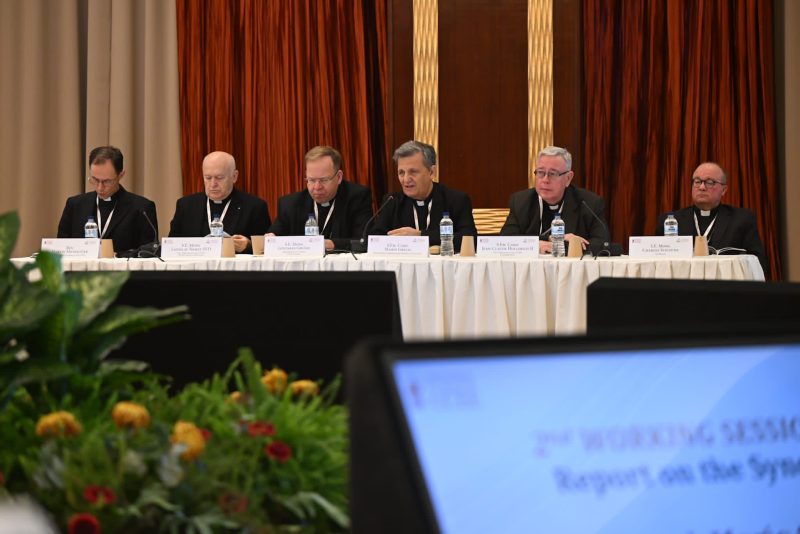In the second working session of the CCEE Plenary Assembly, Cardinal Mario Grech, Secretary of the Synod, gave an address on the synodal process and how synodality applies to the episcopal charism.
The session is part of the Plenary Assembly of the Council of European Bishops’ Conferences, which is being held in Malta from 27 to 30 November. The theme of the plenary is “New steps for a synodal Church in Europe”.
In his report, Cardinal Grech focused, in particular, on the episcopal ministry in the synthesis report of the first session of the synod, which was held in October 2023, and emphasised that this topic “is rich and complex”.
According to the Cardinal, “a synodal Church is not opposed to a hierarchical Church; it does not question the ordained ministry, much less the hierarchical structure of the Church.”, but rather requires “a different way of exercising it that aligns with the Church’s emerging synodal model”.
How then to rethink the bishop’s ministry in a synodal key? Cardinal Grech notes that Pope Francis transformed the Synod from an event to a process, and therefore the bishop’s ministry must be defined at various levels of the synodal process.
In the first stage, the participation of the people of God. The bishops have an “essential and indispensable” role. If – explains the Cardinal – “it is up to the bishop of Rome to call the whole Church to synodal action”, it is instead up to “the bishops to initiate the synodal process in their Churches because of the proper, ordinary, and immediate power they exercise in the name of Christ over the portion Populi Dei entrusted to them”. The bishop is therefore entrusted with the request to consult his Church.
The bishop then – Cardinal Grech continues – has a ministry that “does not end at the level of the particular Church”, but also extends to the Bishops’ Conferences and at the continental level.
Regarding the first level, the Cardinal notes that the Bishops’ Conferences have been called upon to “offer a synthesis of diocesan contributions to be forwarded to the Secretariat of the Synod”, and these syntheses are to be considered “a collegial act of the Bishops in communion with the Bishop of Rome”.
Finally, there is the level of the Continental Assemblies, which have “demonstrated that a process of ecclesial discernment could be based on mutual listening between pastors and members of the People of God, including laymen and laywomen, consecrated men and women, priests, and deacons who all actively participated in the synodal process. This positive experience introduced the possibility of establishing the Continental Assemblies canonically”.
According to Cardinal Grech, the role of the bishops remains central even in the face of the “decision to admit to the General Assembly of the Synod, with the right to speak and vote, members who were not bishops, which would have compromised the episcopal character of the Assembly, transforming it into an ecclesial Assembly”.
However, the Cardinal noted, the non-bishops and lay members were present as witnesses of a synodal path that “had involved the whole Church and everyone in the Church”, and this presence will continue in the third session of the assembly, the one in which the conclusions of the Synod will be received. The synodal documents will be returned to the bishop, who will be “called to ensure the circularity between particular Churches and the universal Church”.
The Cardinal concludes: “Entering into this synodal dynamism means discovering the forms of exercise of an episcopal ministry in a synodal key and finally giving a face to the synodal Bishop. The whole Church and each individual Church will gain from this; each Bishop and the College; the episcopal ministry and the Petrine ministry, which in the synodal process can finally “find a form of exercising the primacy which, without renouncing in any way the essential nature of its mission, opens itself up to a new situation” (UUS 95)”.
Attached is the full text of Card. Grech.
Photo: Archdiocese of Malta – Ian Noel Pace

